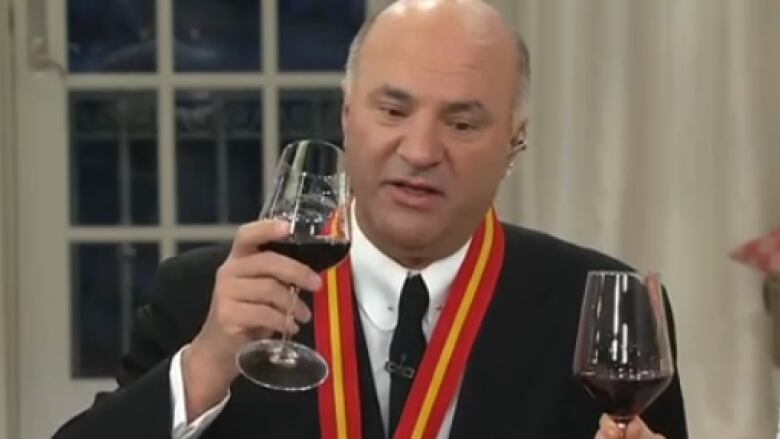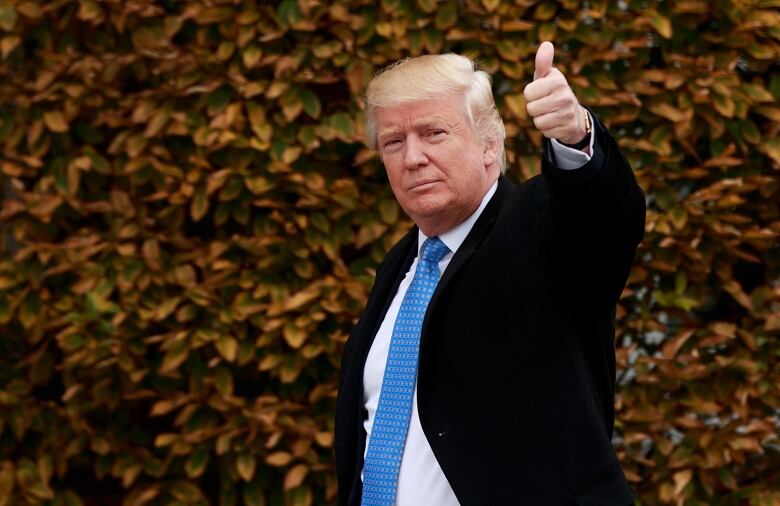The appeal of wealthy politicians we see them as 'incorruptible': Scott Reid
The idea is that a vast fortune will inoculate against temptations a less affluent politician might not resist

"You can trust me, I'm super-rich."
If this strikes you as an unlikely political slogan, take a look around. Plagued by deep cynicism and a profound mistrust of institutions, voters seem increasingly ready to place their confidence in the hands of a very specific sort of leader: the wealthy.
In the U.S., billionaire President Donald Trump zips on an almost weekly basis to his ultra-exclusive Palm Beach resort, Mar-a-Lago. It's a place where he can unwind in the company of the nation's moneyed elite, even as he hates on the political and media establishment. His inherited riches should make him an alien to voters who want to trash the status quo. Yet he emerges, in spite of his gilded inexperience, not as the enemy of these people, but as their prophet.
Love of country and money
Here in Canada, Kevin O'Leary is trying to play the same card with Conservatives. A list of leadership candidates unstained by the slightest speck of charisma has opened the door for the politically underqualified, ostentatious newcomer. O'Leary brags constantly about his love of money, although exactly how much he's made and in what way remain clouded in controversy. Still, his message is clear: I'm rich, which makes me successful, which makes me way better than everybody else, so I should be prime minister. The logic isn't entirely linear, but it obviously resonates with enough of the party faithful to see himnow leading the Tory race.
Trump and O'Leary share other qualities. They're both tough talkers who throw shade easily. They're practiced performers in front of the camera. And they have a talent for communication that's unburdened by strict reliance on verifiable truths.
But being rich is the shared attribute that most obviously connects their candidacies. In fact, they celebrate their one-percenter status with such primate zeal that cash assumes an almost phallic importance. Trump and O'Leary want us to see them as virile strongmen and the evidence is to be found in their pants: where they keep their wallets.
"Money equals freedom." - Mr. Wonderful https://t.co/nzrjyaWAAC
—@kevinolearytvThere was a time not so long ago when well-off politicians worked hard to hide their privilege for fear they'd be characterized as out of touch. Back in 2004, John Kerry's campaign for president was dealt a crippling blow when he was photographed indulging in the rich-boy sport of windsurfing. Those days are long gone. Trump has appointed the wealthiest cabinet in American history, while O'Leary hops on a home shopping network to hawk his own wine label to the buying public.
It works, though, because Trump and O'Leary portray themselves as against-the-odds entrepreneurs, as opposed to corporate lions. To hear them tell it, their connection with real people comes from turning risk into reward. In this context, a swelling bank account is an endorsement of their travails, proof that they've managed to beat the system in the same way so many regular folk imagine they might if given half a chance.
Money wisdom
It should be emphasized that becoming rich is hardly a bad thing. Financial success is, in many instances, a measure of hard work and ingenuity. It is to be admired and certainly, it ought not to attract instinctive resentment.
But a fat bank account does not, as Trump and O'Leary would have you believe, bestow instant wisdom or skills at governing. There is no rule that professional ability in one field guarantees success in another.You don't see many accountants advertising their services as open heart surgeons. So why assume that a business person will automatically make a good politician?
One reason could be that both jobs demand skilled leadership. Fair enough. But an even better explanation is rooted in the importance of trust. Twisted though the logic might seem, many Americans look upon the explosion of big money, political action committees and purchased access to decision-makers and wonder if only the already-rich can afford to be independent. After all, the special interests can't buy a politician who has no need for cash.
This notion of the incorruptibility of extreme wealth the idea that a vast fortune will inoculate against temptations that a less affluent politician might not resist is weirdly powerful. A generation ago, independent candidate for president Ross Perot used it to great effect, suggesting that his enormous wealth guaranteed a peculiar kind of integrity. He couldn't be bought and paid for, and so his only interest would be the public's interest.
Trump repeats this effort and, to a point, it has worked. But now the theory gets tested. As he refuses to divest from his business empire, lobbies foreign leaders to benefit his corporate interests and blurs the line between public office and personal gain, his own voters might start to turn. Should evidence of conflicts, corruption or even personal enrichment emerge during Trump's tenure, the same people who swept him into power because they believed in the virtue of his wealth, might sweep him right back out.

As for O'Leary, some spill-over cynicism into Canada might help boost his pitch, but despite recent reports,our system is vastly less vulnerable to corrupting influences, what with strictcampaign financing rules, donation limits and so forth. When O'Leary mused about selling Senate seats to the highest bidder, he quickly discovered the limited political appeal of "greed is good" as a campaign motto.
Inevitably, certain laws of political reality impose on even the most unorthodox of leaders. Every penny in the United States is minted with the words "In God We Trust." But presidents, and even candidates from Canada, should take care to not get confused. It's not your money they believe in, it's you. Govern well and you will succeed. Govern badly and you will be gone.
And not even the greatest fortune in the world can change that fact.
This column is part of CBC'sOpinion section.For more information about this section, please read thiseditor'sblogandourFAQ.












_(720p).jpg)


 OFFICIAL HD MUSIC VIDEO.jpg)
.jpg)



























































































